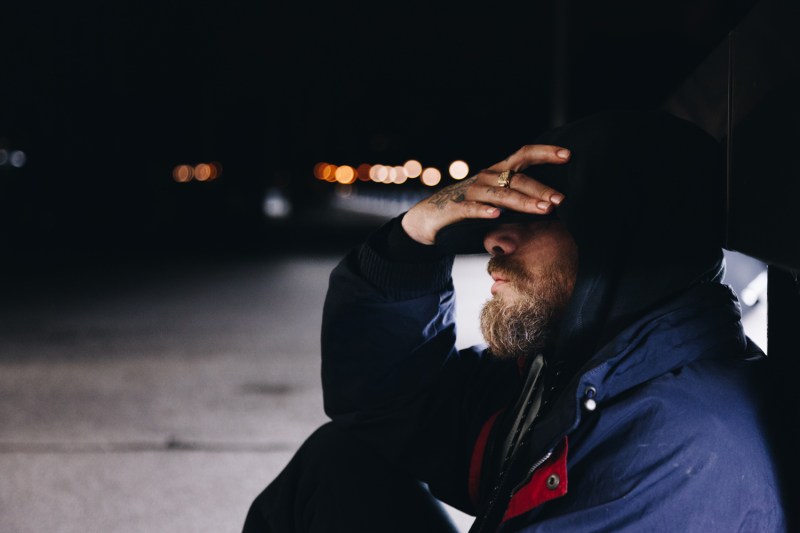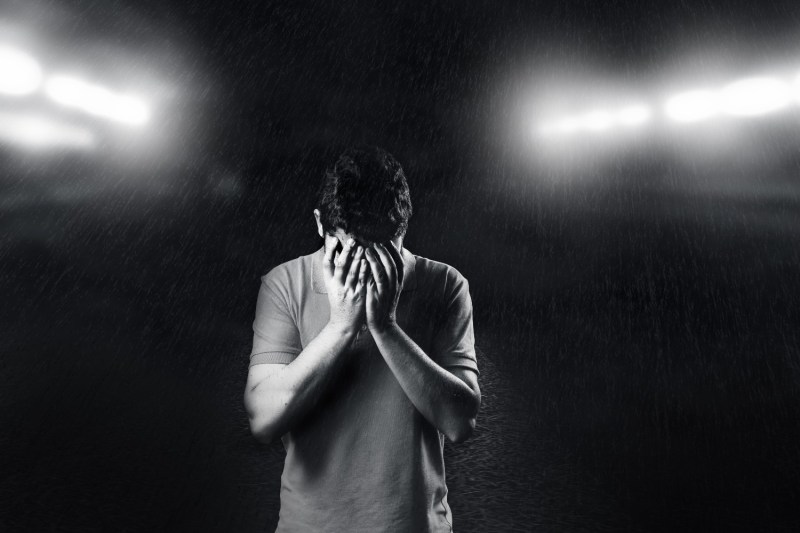
Women and men experience depression in different ways. Thanks to the growing mental health awareness that came out of the last several years, many people see women’s symptoms and recognize them as depression. Unfortunately, too many see men with symptoms and fail to acknowledge the condition for what it is.
The fact that lots of men, as a group, tend to keep their thoughts and feelings to themselves only makes this worse. Too many men languish undiagnosed and suffer needlessly because the signs of depression in men can be more difficult to detect. So what are the signs to look out for, and what can you do to help yourself or a friend or loved one in need? Keep reading to learn more about how to deal with depression.
What is depression?

Periodically, people feel troubled and sad. These feelings typically go away after a few hours or days. However, when those troubled, sad, and bothersome feelings last for weeks or months, they may be indicative of depression. A clinician, therapist, psychologist, or psychiatrist should be able to diagnose this condition. They can also help you find ways to alleviate it.
Depression is a common mood disorder. It can cause serious symptoms that sometimes make day-to-day functioning extremely difficult. Depending on those symptoms, men suffering from depression can easily feel overwhelmed. Unfortunately, while many women may feel comfortable discussing their sadness, men rarely open up in similar ways. In fact, some men hide their symptoms and present as angry or aggressive when they’re hurting inside.
Men with depression may feel exhausted and detached from hobbies, friends, or family members. They may be unable to sleep at night or start experiencing physical problems. Symptoms such as headaches or diarrhea can cause men to seek a doctor’s help more than emotional symptoms. These symptoms are also associated with any number of physical illnesses and may be misdiagnosed. This only adds to the struggle, as men with depression may turn to alcohol and drugs in an effort to self-medicate.
Men from any background can suffer from depression, no matter their age. However, with a timely diagnosis and adequate treatment, they can also treat their depression and return to a happier, healthier lifestyle.
Is depression hereditary?
Yes, depression can have a hereditary component. Studies suggest a genetic link that increases risk, but it’s not a simple cause-and-effect relationship. Having a close family member with depression raises your own risk for developing it. The closer the relative, the stronger the influence. Twins and parents tend to have a higher correlation than distant relatives.
However, genetics don’t guarantee depression. Even with a family history, many people don’t develop it. There are likely multiple genes involved, and they interact with environmental factors in complex ways. Research suggests genetics may play a role in up to 40% of depression cases. The remaining 60% can be attributed to environmental and other unspecified factors.
How does depression affect men?

Unfortunately, men who suffer from depression tend to go undiagnosed for far too long. The reasons include:
- No knowledge of depression or its symptoms. The public, including primary care physicians, often believe that depression presents itself when someone feels extreme sadness. Many men instead feel tired, irritable, and irregular, and they may suffer from headaches or chronic pain.
- Denial. Men sometimes don’t want to admit to themselves that they’re depressed. They’ll ignore or suppress their feelings, hoping they will all just disappear. Often, their symptoms only get worse.
- Shame and fear surrounding mental health issues. Too many men resist therapy and other forms of treatment. They’re worried or overly concerned about what their loved ones and co-workers might think of them. This embarrassment contributes to self-medicating and further suppression of symptoms.
- Dangerous stereotypes and societal pressures. Men suffer in a society where they’re expected to sort through their troubles alone. When that happens, men often feel isolated. This doesn’t help treat depression or its symptoms.
Symptoms and signs of depression in men

1. Behavior changes
- Increased drinking or drug use
- Withdrawing from family and friends
- Avoiding social events
- Working obsessively without taking breaks
- Missing appointments
- Becoming unreliable
- Forgetting important details or events
- Becoming easily distracted
- Abusing others
- Becoming quick to anger
- Taking risks with little regard for self or others
- Thinking about suicide or having suicidal ideations
2. Physical discomfort
- Chronic pain
- Headaches
- Body aches in joints, back, and limbs
- Chest tightness or pains
- Nausea
- Constipation
- Exhaustion
- Inability to sleep
- Agitation
- Restlessness
- Overeating or undereating
- Unexplained weight loss
3. Emotional issues
- Rage
- Bitterness
- Frustration
- Resentment
- Aggression
- Annoyance
- Irritability
4. Subtle, unexplained changes
- Feelings of overwhelming sorrow or emptiness
- Crying jags
- Loss of enjoyment in previously enjoyable activities
- Inability to eat or binge-eating
- Waking up in the middle of the night for hours at a time
- Sleeping during the day
- Becoming easily angered or annoyed
- Inability to concentrate
What can help with depression?

If a man isn’t aware of his inner feelings or won’t discuss them, a well-meaning friend or family member can bring them up. If done gently with much love and support, that can encourage him to seek help. A primary care physician or another health professional can order tests, perform routine examinations, and ask specific questions. They do this to rule out other possibilities for physical symptoms and determine the cause of the problem.
After a diagnosis, depression treatment usually includes medicine, therapy, or a combination of both. A “collaborative care” approach is popular and effective. It combines physical and behavioral care with a team of clinicians, including a general practitioner and specialists.
1. Medicine
Some doctors use antidepressants to treat depression, with varying degrees of success. They can take a few weeks to work and often improve sleeping and eating irregularities before improving mood. Doctors recommend taking the medication for about a month before determining its efficacy.
Some side effects can occur while taking antidepressants, such as:
- Headaches
- Nausea
- Anxiety
- Insomnia
- Restlessness
- Sexual dysfunction
Some of these side effects mirror depression symptoms. However, with medication, many of these symptoms get less noticeable over time. Therefore, it’s important to discuss what’s happening with your doctor so they can monitor the dosage and minimize negative side effects.
Keep in mind that many antidepressants that are effective and safe for adult men can be risky for children and young adults. Parents should always check for a “black box” warning on some medication. This serious warning alerts parents to the risk that some drugs increase thoughts of suicide in young patients. Monitor your children closely, especially when they first start taking antidepressants, for any signs of agitation.
For most men, the risks of untreated depression far outweigh the side effects of taking the antidepressants their doctors prescribe. As long as a doctor carefully monitors your progress and symptom management, you should feel more benefits than negatives.
No one knows why, but many male patients respond to some medications while other drugs have no effect on them. Again, this is why it’s important to stay under a doctor’s care. If one type of drug doesn’t work, perhaps there is another that will.
Many studies have shown that plant medicine can be helpful for depression that is resistant to traditional medicine. These findings have encouraged some lawmakers to decriminalize psilocybin and other psychedelics so that more people suffering from depression might benefit from their use.
Once you begin taking prescription antidepressants, do not stop taking them without your doctor’s assistance. Some people stop taking their medicine because the symptoms disappear. Then, when symptoms return, they can be overwhelming. If patients want to try going without the medication, typically after six months to a year, doctors can help them gradually stop their medication safely to avoid withdrawal symptoms. This can help prevent a relapse into depression and further, lengthier periods of medication.
2. Psychotherapy
Everybody is different. While some men respond well to therapy, others may need a combination of therapy and medication. Many different types of psychotherapy are useful when treating depression. For example, talk therapy involves a licensed clinician who can listen to depressed patients talk through their issues. Then the therapist can teach the patient innovative ways of thinking about those issues and new behavior techniques for dealing with them.
When someone suffers from depression, they often must rethink old habits and then work to change those habits into healthier ways of dealing with their problems. This leads to a healthier outlook. Some more popular methods involve cognitive behavioral therapy (CBT), problem-solving therapy, and interpersonal therapy (IPT).
If a man you love is depressed, you can help by encouraging him to see his doctor or a therapist. It might be easier to do this if you help him recognize that physical and emotional symptoms can improve with medication or other therapies. In addition, he might be more willing to talk to his doctor if he knows that doing so will improve his ability to work or enjoy treasured activities.
Discussing this with a doctor is an excellent first step toward more awareness about depression and how to treat it.
Other ways to help include:
- Supporting him with understanding and encouragement
- Remaining patient
- Listening to his concerns
- Repeating the concerns back to show that you understand
- Alerting his doctor if talk turns to suicide
- Paying attention to sudden changes in behavior or emotions
- Encouraging physical and social activities
- Encouraging him to communicate with his therapist or doctor
- Helping him get to appointments
- Staying positive and hopeful



